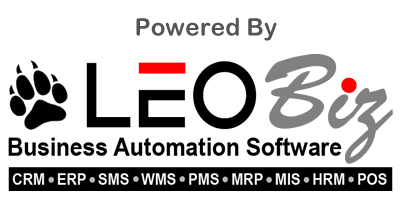How Your Brand Works.
The Magic of Brand automation.

Brand Automation Service Explained
Brand Automation refers to the use of technology and software to streamline and automate various processes, tasks, and workflows within a business brand. The aim is to increase efficiency, reduce manual intervention, minimize errors, and improve overall productivity. By automating repetitive and time-consuming tasks, brand can free up resources and focus on more strategic activities to drive growth and innovation.
Includes.
CRM Implementation
Automation in CRM involves managing customer data, interactions, and communication more effectively. It can include automated email responses, lead scoring, and personalized marketing campaigns.
Sales Automation & Tracking
Automation can be applied to the sales process, including lead generation, lead tracking, sales forecasting, and follow-up communications.
Marketing Automation
This involves using software to automate various marketing tasks, such as email marketing, social media posting, lead nurturing, and analytics.
Operations and Production
Automation can be utilized in manufacturing and production processes, where robots and machines perform tasks that would otherwise require significant human labor.
Inventory Management
Automation can help optimize inventory levels, reorder products automatically, and manage stock more efficiently.
Finance and Accounting
Automating financial processes like invoicing, expense tracking, payroll management, and financial reporting can improve accuracy and efficiency.
Human Resources Management
Automation in HR can include applicant tracking systems, employee onboarding, performance evaluations, and time tracking.
Data Analysis and Reporting
Automation tools can generate real-time reports and analytics, providing businesses with insights for better decision-making.
Management dashboards
Management dashboard is a visual representation of key performance indicators (KPIs) and critical business metrics that provide managers and decision-makers with a real-time overview of the organization's performance.
Offers
Sales Management Module
The sales management module is a vital component of a comprehensive business software system, designed to streamline and optimize all aspects of the sales process. This module encompasses functionalities such as lead tracking, opportunity management, customer relationship management (CRM), sales forecasting, order processing, and performance analytics.
Production Module
Production planning and requisition is a critical aspect of efficient manufacturing operations, involving the systematic process of determining production schedules, resource allocation, and material requirements to meet demand while minimizing costs and optimizing resources. The production planning and requisition process involves analyzing sales forecasts, inventory levels, and capacity constraints to create a comprehensive production plan that outlines the quantity and timing of each product to be manufactured.
Stock Inventory Module
The Stock Inventory Module is an essential component of inventory management software, designed to efficiently track, manage, and optimize the stock levels of a business. It provides real-time visibility into available stock, incoming shipments, and outgoing orders, enabling businesses to maintain optimal inventory levels, reduce carrying costs, and prevent stockouts or overstocking situations.
Financial Reporting Module
The Financial Reporting Module is a crucial component of accounting and financial management software, designed to facilitate the generation and analysis of comprehensive financial reports. This module gathers and consolidates financial data from various sources, such as general ledgers, balance sheets, income statements, and cash flow statements, and presents them in a structured format..
Human Resource Module
The Human Resource (HR) Module is a fundamental component of modern HR management software, designed to streamline and centralize all aspects of human resource operations within an organization. This module typically includes functionalities such as employee data management, recruitment and onboarding, time and attendance tracking, leave management, performance evaluations, training and development, and payroll processing.
MIS Module
The Management Information System (MIS) Module is a critical component of enterprise software solutions, providing decision-makers with comprehensive data and insights to support strategic planning and business operations. This module collects, processes, and analyzes data from various departments and functions within the organization, presenting it in user-friendly dashboards and reports.
Brand Automation Advantage
By implementing brand automation, companies can save time, reduce the potential for human errors, maintain a cohesive brand identity, and allocate resources more strategically. However, it's essential to balance automation with human oversight to ensure that the brand's unique voice, creativity, and adaptability are preserved.

